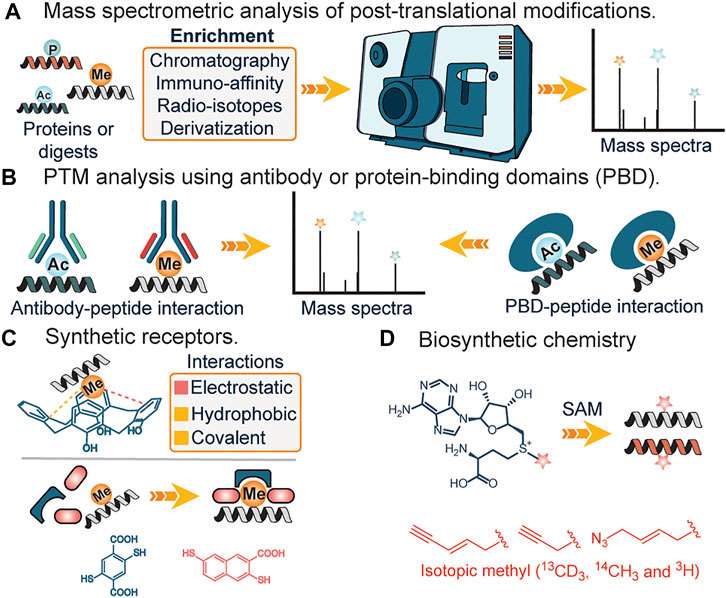PTM Profiling Analysis Service
PTM profiling analysis refers to the study of the chemical modifications that occur when proteins are translated. These modifications play critical roles in regulating protein function, localization, and interactions within cells. Creative Proteomics offers high-quality PTM profiling services to provide valuable insights for research into cell signaling, disease mechanisms and therapeutic targets, etc.
What is PTM Profiling Analysis
Post-translational modification (PTM) is the covalent process of altering proteins after protein biosynthesis, a process that may involve enzymes or occur spontaneously. PTM can occur at the C- or N-terminus of amino acid side chains or proteins, and can be performed by altering an existing functional group or by adding a new one to give peptide chains their diversity. Sites where post-translational modifications frequently occur are those with functional groups that can act as nucleophiles in the reaction: hydroxyl groups of serine, threonine, and tyrosine; amine groups of lysine, arginine, and histidine; sulfate anions of cysteine; carboxyl groups of aspartic acid and glutamic acid; and N- and C-termini.

Fig.1 Schematic of PTM profiling (Emenike B, et al., 2022)
The vast majority of proteins undergo post-translational modification, which alters the structure of the protein, confers its biological function, and affects its interactions, allowing it to play a key role in a variety of biological processes, including signaling and regulatory processes, protein activity and degradation, and regulation of gene expression. For example, phosphorylation is very effective at controlling enzyme activity and is the most common post-translational change. The attachment of carbohydrate molecules is glycosylation, which promotes protein folding and has regulatory functions. Attachment of lipid molecules is called lipidation and usually targets proteins attached to cell membranes.
The Principle of PTM Profiling Analysis
PTM results in an increase in the molecular weight of specific sequences compared to proteins that have not undergone modification. For identification, proteins are enzymatically cleaved into peptides for mass spectrometry analysis, by which molecular mass information is obtained for a series of peptides. For a particular peptide, sequence information and molecular weight are determined without any PTM occurring. If the protein undergoes PTM, then molecular weight changes will show up.
Applications of PTM Profiling Analysis
- Cell Signaling Studies
PTM analysis is crucial for understanding cell signaling pathways. It reveals how phosphorylation, acetylation, glycosylation and other modifications regulate signaling cascades. - Cancer Research
PTM profile analysis in cancer cells helps identify alterations in protein modifications, offering potential biomarkers and insights into cancer biology. - Drug Discovery
Application: Identifying PTMs associated with drug targets aids in drug discovery. Understanding how drugs affect PTMs helps in developing targeted therapeutics.
Our Service
Creative Proteomics has advanced protein detection technologies and can provide customized services to researchers and scientists to help them reveal the complexity of PTM using powerful mass spectrometry technologies. Our services are thoughtful and detailed and the process of PTM profiling analysis service is as follows:

Fig.2 PTM profiling analysis workflow
Creative Proteomics brings a wealth of experience to the field of protein research. Our comprehensive services and products cover the entire spectrum of utilizing suitable and efficient gateways. Utilizing our proprietary platform, we have successfully implemented many proteomics research projects. If you are interested, please contact us for more information and a quote.
Reference
- Emenike B.; et al. Covalent Chemical Tools for Profiling Post-Translational Modifications. Front Chem. 2022, 10: 868773

